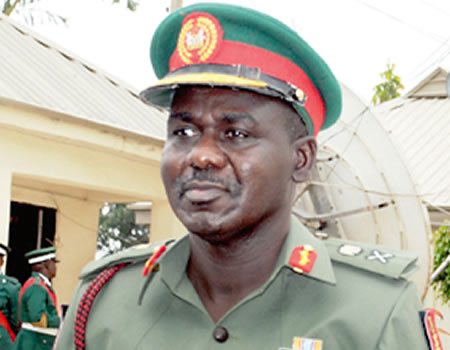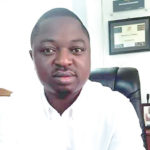Group Politics Editor, TAIWO ADISA, takes a look at the raging controversy as to the role of security agencies in the elections as the nation warms up for the rescheduled presidential and National Assembly elections.
According to the Chairman of Independent National Electoral Commission (INEC), Professor Mahmood Yakubu, all is set for the conduct of the rescheduled presidential and National Assembly elections, which are now to take place on Saturday. Within the intervening days, from February 16, a number of issues had reared their heads. Within that one week, seeming like a million years in the eyes of the politician, hell was practically let loose in many fronts as INEC came under severe hammer of attacks. The two leading political parties, the ruling All Progressives Congress (APC) and the Peoples Democratic Party (PDP), have consistently berated INEC for one perceived laxity or the other.
Again, three persons killed in renewed cult war in Edo State
President Muhammadu Buhari, a candidate in the election, accused the commission of incompetence; national chairman of APC, Adams Oshiomhole, called for reorganisation of INEC, while his PDP counterpart, Uche Secondus, asked for Yakubu’s immediate resignation. PDP also accused INEC of colluding with the ruling party in some states to replace properly-trained ad hoc electoral staff with APC members and, in some cases, replacement of the electoral officers (EOs) in accordance to the demands of the ruling party.
By and large, the nation is going to the polls tomorrow with a largely polarised polity. All eyes are, however, on INEC which has announced several times it is “good to go” to get things right this time.
President Buhari’s shoot-on-sight order
One of the key statements, during the week, has been the one credited to President Buhari at the APC National Caucus meeting in Abuja on Monday. The president’s position is tricky in the emerging scenario. He is a candidate in an election his government is supervising. He remains the Commander-In-Chief of Armed Forces and the Chief Executive of the Federation. On his neck lies the security of the state and the sanctity of the election. In that wise, his words are going to the polls carry more than ordinary weight.
At the emergency meeting, the president sent shock waves across the polity when he gave a “shoot-on-sight” order to the police and the military. The order was to the effect that the security agencies and the military should deal “ruthlessly” with anyone caught trying to disrupt the presidential and National Assembly elections.
The president had said: “I do not expect anybody to make any disturbance. I have briefed the law enforcement agencies and the military to identify hot spots, flash points and they should be prepared to move. They, too, would have made their own arrangement as much as possible and as resources provide as much as the country can afford it.
“And anybody who decides to snatch ballot boxes or lead thugs to disturb it (election) maybe that would be the last unlawful action he would take. I have directed the Police and the military to be ruthless. We are not going to be blamed that we want to rig elections. I want Nigerians to be respected. Let them vote whoever they want across the parties. I’m not afraid. As you said, I have gone round all the 36 states and Abuja. I think I have gotten enough support across the country. I am going to warn anybody who thinks he has enough influence in his locality to lead a body of thugs to snatch boxes or to disturb the voting system, he would do it at the expense of his own life.”
Buhari’s main challenger in the election, Atiku Abubakar of PDP, immediately fired a riposte where he admonished the military to disobey illegal orders as far as the election is concerned. He said the constitution and the laws give no role to the military during elections.
Atiku said: “I want to direct this message to our military commanders and officers. You know that the military commanders and officers are not bound to execute orders that are manifestly unlawful. This is the la; this is the tradition in the military. So if you are a professional military officer and soldier and also a policeman, you are not bound to execute an order that is manifestly unlawful, no matter who issues that order.”
PDP also immediately branded Buhari’s statement an incitement of the military against the civil populace, while lawyers and civil society organisations have insisted the directive was against the laws of the land. For instance, PDP national chairman, Secondus, said the statement was borne out of the desperation of Buhari to cling on to power, while also describing the statement as a declaration of war on the Nigerian voters.
Secondus said: “The president’s confirmation that he has directed the service chiefs to kill Nigerians is nothing but a pre-determined script hatched by the ruling party to create voter apathy and implement their result replacement plans using thugs protected by the military.”
Speaker of the House of Representatives, Honourable Yakubu Dogara, also attacked the statement credited to Buhari, calling it a direct attack on the citizen’s civil rights and an endorsement of extrajudicial killings.
He also declared that it was obvious that the statement credited to the president had given the military a central role in the elections and co-opted them into the conduct of the elections, notwithstanding the fact that the constitution gives no such roles to the military.
Dogara said on Monday in Abuja: “The president said, ‘anybody who decides to snatch boxes or lead thugs to disturb the elections, maybe that would be the last unlawful action you would take. I have given the military and police the order to be ruthless. I am going to warn anybody who thinks he would lead a body of thugs in his locality to snatch boxes or to disturb the voting system; he would do it at the expense of his/her own life’. Mr Oshiomhole also claims that PDP was given prior notice of the postponement of the elections.
“In this context, we categorically deny these false claims and unnecessary blackmail and regard the president’s statement as a call for extrajudicial killings, considering the fact that there are adequate provisions in our laws to address electoral offences. These statements clearly indicate that our democracy has become the victim of a full-blown dictatorship, when one considers that a democratically-elected president would give a directive that is in clear violation of the laws of the land which by his oath of office he is to defend and protect.
“In reality, we support a genuine and transparent probe into why the presidential and National Assembly elections could not hold. We also hope that the president’s inflammatory statement is not a threat aimed at intimidating the electoral commission.”
The Coalition of United Political Parties (CUPP), which spoke through its spokesman, Imo Ugochinyere, said the statement was callous and insensitive. He said: “The president was unambiguous in his call that citizens should be shot dead extra-judicially if they ever tried to snatch ballot boxes during the elections.
“That is the most callous public statement ever by a Nigerian president. It must be condemned by all well-meaning citizens and the international community. President Buhari must be held personally responsible for the loss of any lives due to the instructions he has given to the security forces.”
Other notable voices that condemned the president’s declaration include the Committee for Defence of Human Rights (CDHR), human rights lawyer, Femi Falana (SAN) and a group known as Atiku’s Friends. They all described the statement as scary and alerted the international community to stand with Nigeria in the face of such threats.
The president’s publicists, including Senator Bola Ahmed Tinubu (who was the first to attempt to modify the president’s statement) and the spokesman of the APC Campaign Organisation, Festus Keyamo (SAN), have continued to defend the statement by the president. Keyamo saw nothing unconstitutional in the statement, as he declared the law enforcement agents can shoot to kill a suspected criminal caught at the scene of a crime. He called that “justification and excuse” and declared that those who have no intention to perpetrate electoral crimes have nothing to fear.

What the Electoral Act says
On Tuesday, Chairman of INEC, Professor Yakubu, mounted the podium at the International Conference Centre (ICC), Abuja, where he addressed journalists and observers. He was asked a question relating to the shoot-at-sight order and he clearly stated the position of the law. All electoral offenders must be dealt with according to the dictates of the law. Section 128 and 129 of the Electoral Act 2010 (as amended) stipulate offences recognisable at elections and also prescribed punishments for each of the offences. None of the said offences, however, carries the death penalty.
Section 128 of the Electoral Act 2010 (as Amended) states that: “Any person who at an election acts or incites others to act in a disorderly manner commits an offence and is liable on conviction to a maximum fine ofN500,000 or imprisonment for a term of 12 months or both.”
In giving further details to electoral offences, Section 129 goes into details by listing possible offences and prescribing punishment as appropriate. It provides as follows: “(1) No person shall on the date on which an election is held do any of the following acts or things in a polling unit or within a distance of 3 00 metres of a polling unit- (a) canvass for votes; (b) solicit for the vote of any voter; (c) persuade any voter not to vote for any particular candidate; (d) persuade any voter not to vote at the election; (e) shout slogans concerning the election; (f) be in possession of any offensive weapon or wear any dress or have any facial or other decoration which in any event is calculated to intimidate voters; (g) exhibit, wear or tender any notice, symbol, photograph or party card referring to the election; (h) use any vehicle bearing the colour or symbol of a political party by any means whatsoever; (i) loiter without lawful excuse after voting or after being refused to vote; (j) snatch or destroy any election materials; and (k) blare siren.
“(2) No person shall within the vicinity of a polling unit or collation centre on the day of which an election is held- (a) convene, hold or attend any public meeting during the hours of poll as may be prescribed by the Commission; (b) unless appointed under this Act to make official announcements, operate any megaphone, amplifier or public address apparatus; (c) wear or carry any badge, poster, banner, flag or symbol relating to a political party or to the election.
“(3) A person who contravenes any of the provisions of this section commits an offence and is liable on conviction to a fine of NIOO, OOO or imprisonment for a term of 6 months for every such offence.
“(4) Any person who snatches or destroys any election material commits an offence and is liable on conviction to 24 months imprisonment.”
Section 129 (4), as stated, above is instructive and directly answers the postulation of President Buhari when it indicates that a ballot snatcher would be liable to 24 months imprisonment.
Unwarranted dimensions
No one expects any form of altercation between the military and any section of the political class in peace or war. This is because the military is apolitical. The children of the high and mighty as well as the lowly are involved in the military. The disposition and legal challenges placed on the institution is to ensure the territorial integrity of the nation at all times.
The 2019 election process, however, appears to be defying the old-age tradition as far as the now famous outburst of the president is concerned. The Chief of Army Staff (COAS), Lieutenant General Tukur Buratai, had, during the week, taken exceptions to comments directed at the military by the presidential candidate of the PDP. While Buratai spoke in general terms, PDP and some people in the polity believed that the comments might drag the military into the arena.
Perhaps, it was heart-warming that the military chief in his speech eventually recognised the supremacy of the constitution and the laws. While speaking at a meeting with principal staff officers and military commanders at the Army Headquarters, Abuja, on Wednesday, the COAS said the military remained apolitical.
He said: “It is unfortunate to hear persons who are aspiring to rule this country again inciting the army to disobedience. We have consistently stated our position in the political dispensation to remain neutral and apolitical. However, direct and public incitement of the Nigerian Military against democracy and constituted civil authority will not be tolerated. I request such persons to withdraw this inciting statement.
“Let me re-emphasise, loud and clear, that the Nigerian Army is a professional army. The foundation of military professionalism is discipline and without discipline an army cannot stand. One of our core values is loyalty to constituted authority. Loyalty must be hundred per cent. I shall leave you in no doubt as to our resolve to bequeath a professionally responsive army to Nigeria and Nigerians.”
In recognising the supremacy of the constitution, Buratai further said: “Our role is aptly captured in the 1999 Constitution of the Federal Republic of Nigeria (as amended) and we must defend Nigeria’s territorial integrity as well as act in aid of civil authority when called upon to do so. Therefore, commanders must work with all stakeholders, interest groups and agencies to avert any act by any individual, groups or entities that seek to undermine our democratic process.”
Therefore, notwithstanding any extraneous interpretation an operative may give to the president’s statement, there appears the consensus that intendment and the position of the law would ring supreme at the end of the day. What this means in effect, according to election experts, is that any uniformed man or woman who carries out an unlawful order during the elections would be liable to answer questions whenever he or she drops the uniform.






